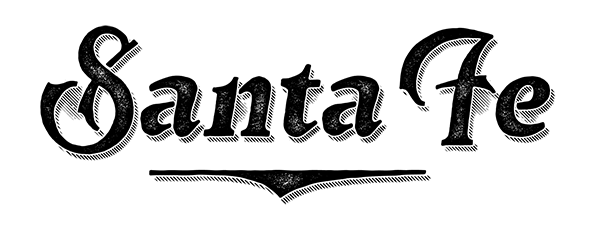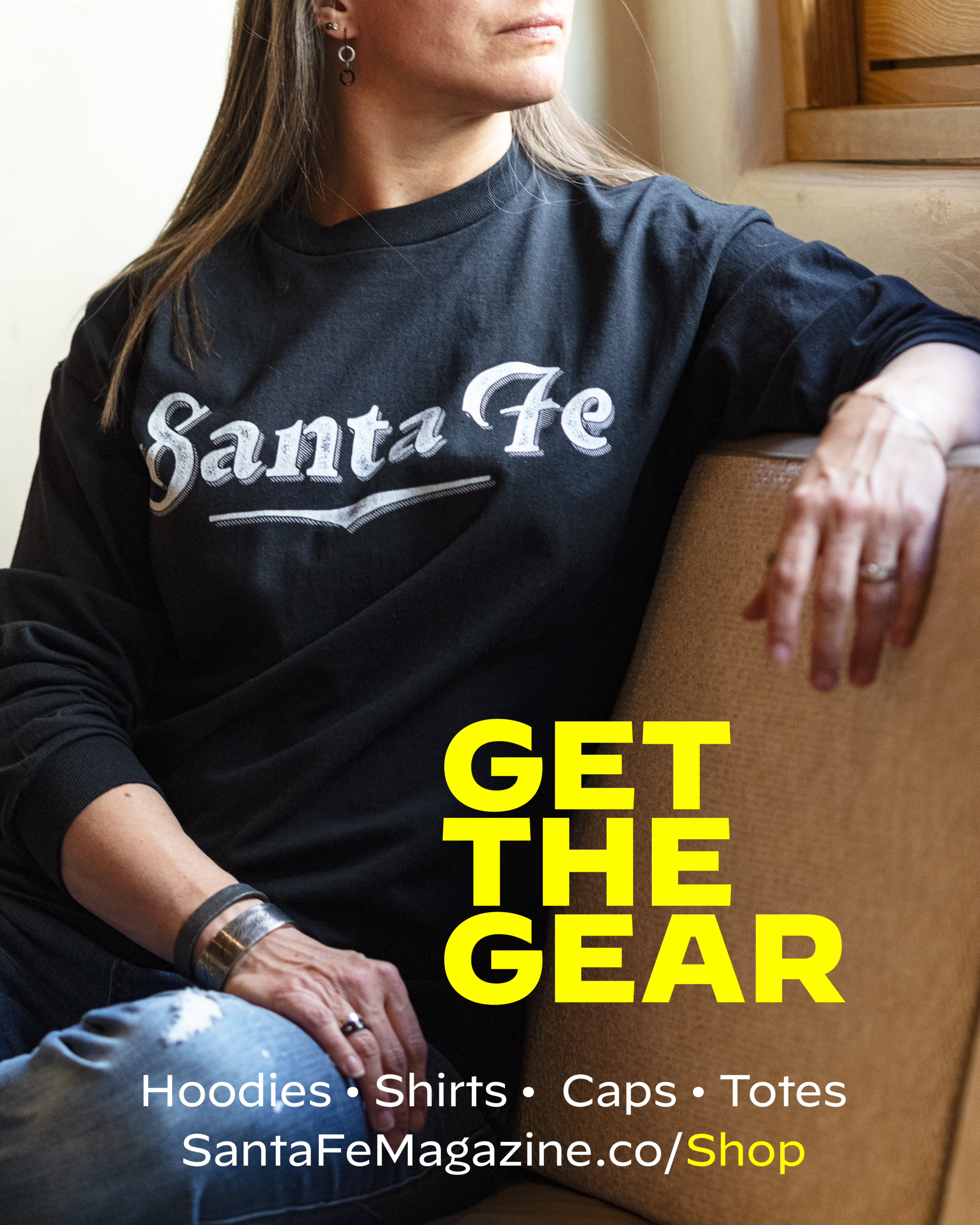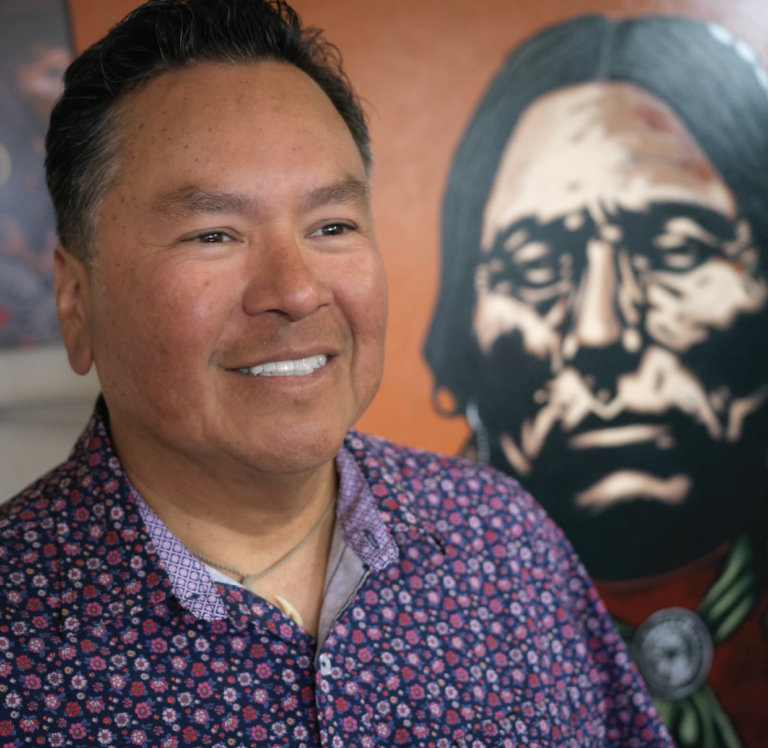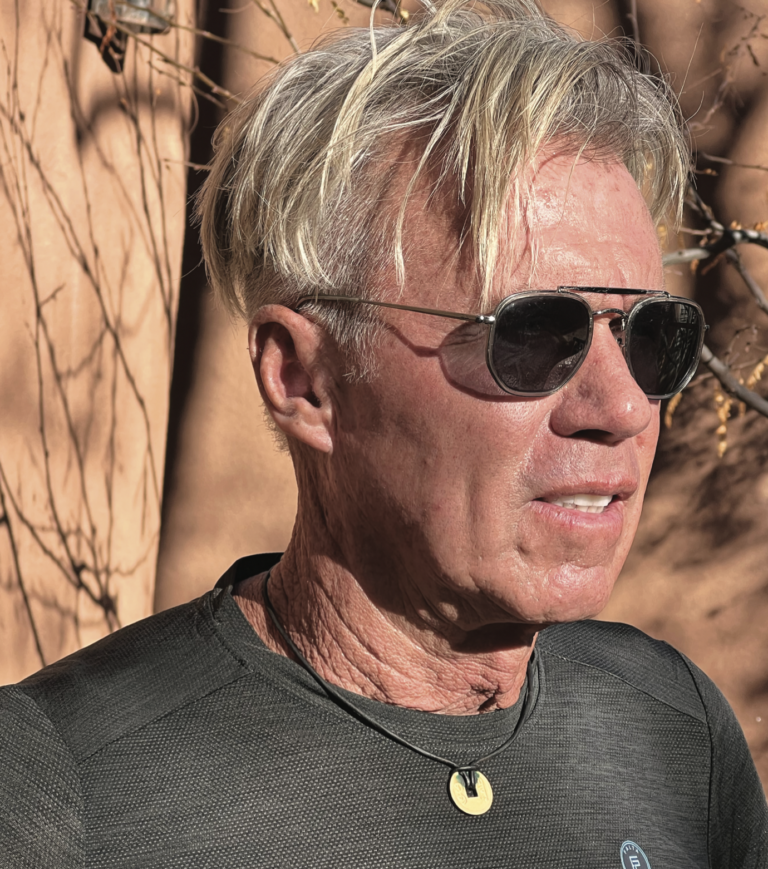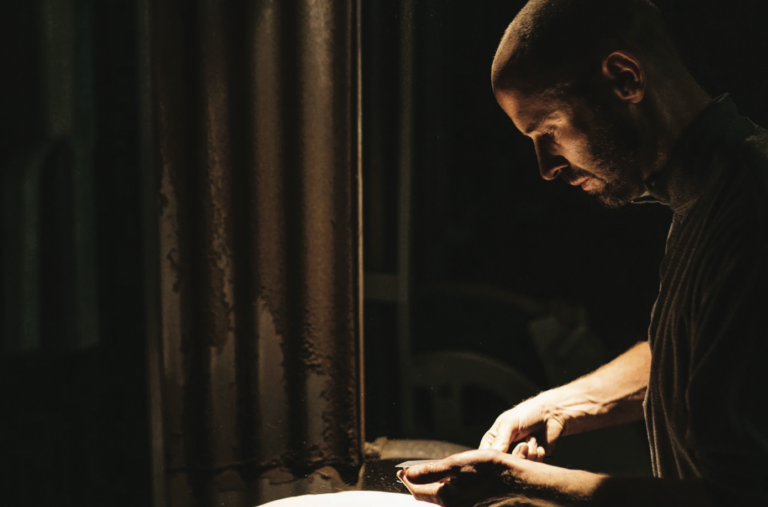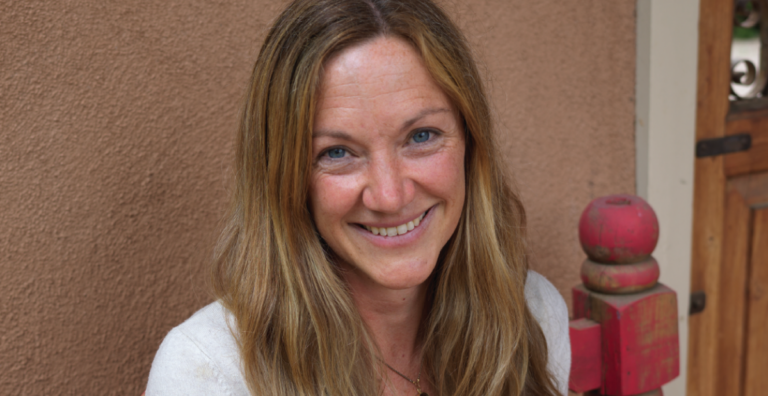ROBERT ABEYTA LIVES in the thick-walled adobe that he and his wife built.
It’s a charming house on the hill that bears his family name – ABEYTA.
He looks deeply at you when you speak to him.
As if he is accustomed to finding something when he does that.
It seemed like he trusted me. I left feeling there was much that was unfathomable about this man.
Tell me about your family.
Seven generations we’ve been in Santa Fe. My grandfather Davi Rodriguez is buried behind the church – he donated the land. Translate David to Spanish: Don Davi. Go to the church, and you can see where he died. And then there’s my other grandpa, my great-grandpa Abeyta, who lived on Abeyta Street. That street was named after him.
When did your great-grandfather come here?
The 1800s. I have a letter that he and his wife wrote to her parents to ask for her hand in marriage. It’s in Spanish, but I’m gonna have it translated. I also have his tools. And the bed he used to sleep on.
There’s such continuity in your family.
For me, it’s pride. I tell my daughters, When I pass, I hope you keep it. I can’t control what you do, but this is your heritage. Don’t be like the people that sold, or had to sell, to the rich.
How did your ancestors make a living?
Don Davi was actually a very wealthy man. He owned land, was a farmer; very intelligent, super intelligent. He was, I would say, the one that everybody came to. That house that you see right there, that’s where he built, and next to that one is my daughter’s. Part of that one is over 225 years old.
They were landowners. Did they have a craft? Were they farmers?
Davi was probably, I would say, everything. He built the little house that my daughter lives in, the foundations all rock and dirt, and it’s still there. The walls are 30 inches wide. I used to ask my mom, Why did they put the windows up high? She said, Well, when the gypsies came, we were afraid they’d come in and… She talked a lot. I wish I would’ve recorded her.
How has the neighborhood changed?
People aren’t the same. I can walk the street, and people put their heads down. My mom always said, Talk to everybody. We didn’t look at people differently. We always helped Mrs. Walton across the street. I can name all the people there. But now you walk the street, people hardly talk. And if I say, Good morning, how’s it going?, they jump on their phone; it’s like, What is this?
But I still love Santa Fe. I love when people talk to you. I wanna know about people coming in, who they are, what they do. That’s what I wanna learn.
What was the high school like in the ’70s?
It was mostly local people, and I say local people; they call themselves Spanish people. For me, I saw the change after high school. I already had a child at 19, so I got married. I was married for 46 years.
But all these houses used to be owned by families and their kids. After high school, when the parents died, the kids sold out and bought themselves a Corvette and lived wherever. But I said, That’s not the point. Where am I gonna go? I don’t need to be someone else. I’m fine where I’m at. I love where I’m at. So I built a house for me and my wife and my daughters.
You built your house?
It’s adobe. We framed everything. We hired Patsy’s brother to do a lot of the construction. We did the 4/12 pitch, we did the skylights.
And you just decided to do this yourself?
It was me and my wife. Johnnie’s Cash Store is on Don Miguel – that’s my wife’s family, and we were living there. One day my wife says, You know what? We need to go up to Abeyta Hill.
And it happened that my uncle, when I was in sixth grade, he said to me, I’m gonna give you part of this land so you can take care of your mom. And I did end up taking care of my mom, and that was the spot where we built the adobe. There was nothing here, just a peach tree, winter pears, and an apple tree – they’re probably over 100 years old now.
What makes you get up in the morning?
What I care about is the people around the neighborhood, and I always think, What does it take for us to just look at each other instead of being so judgmental? What does it take?
I always say, If you need any help with anything, we help, but we don’t want nothing in return. That’s also what my mom always said, and we do that – we help a lot of people.
How can I put it? I’m trying to find the right words to say. People that come in, I don’t care who it is, try to change our way of living. They say, How come you don’t get a backhoe instead of digging with your shovel? Because I don’t have the money you have, and I enjoy it just like it is.
I’ve gone through a lot in my life. Probably 15 major surgeries, and I still walk. I thank God for that. I lost my dad, my mom, my uncle, my only sister, and my wife all within eight years. It taught me that they’re there, always. Me and my wife, we did everything together. We laughed, we put adobes up. But you gotta move forward. And the only way you move forward is through you, yourself.
Photo SFM
